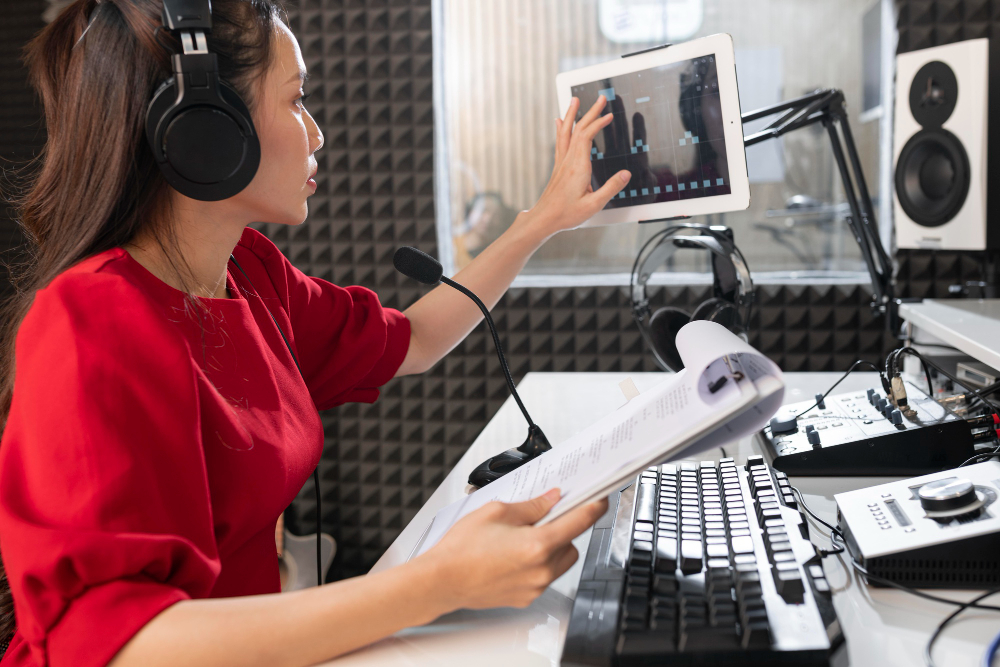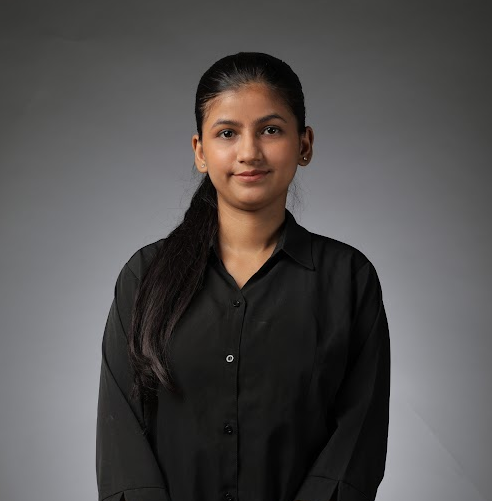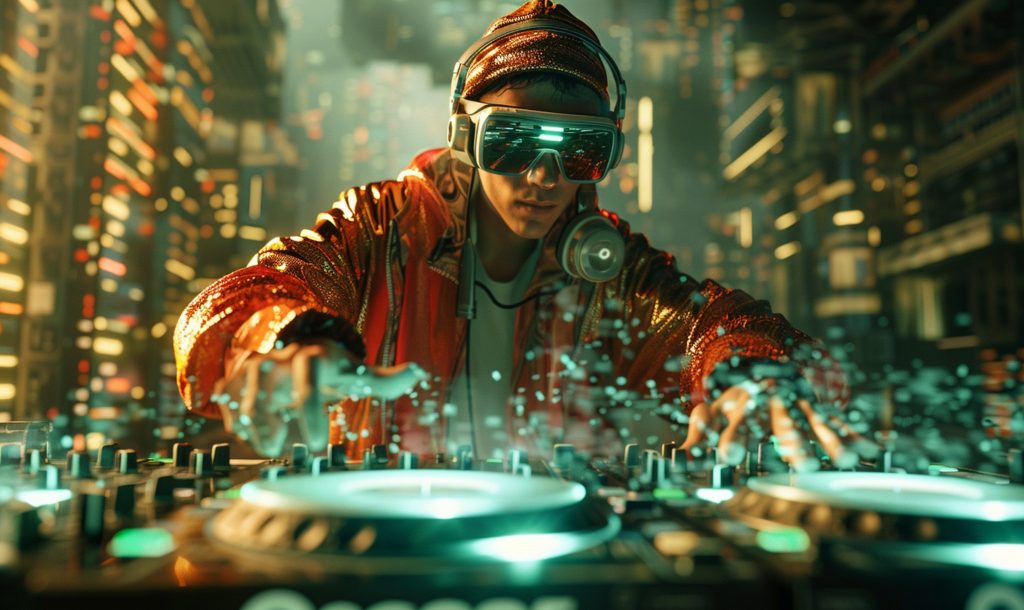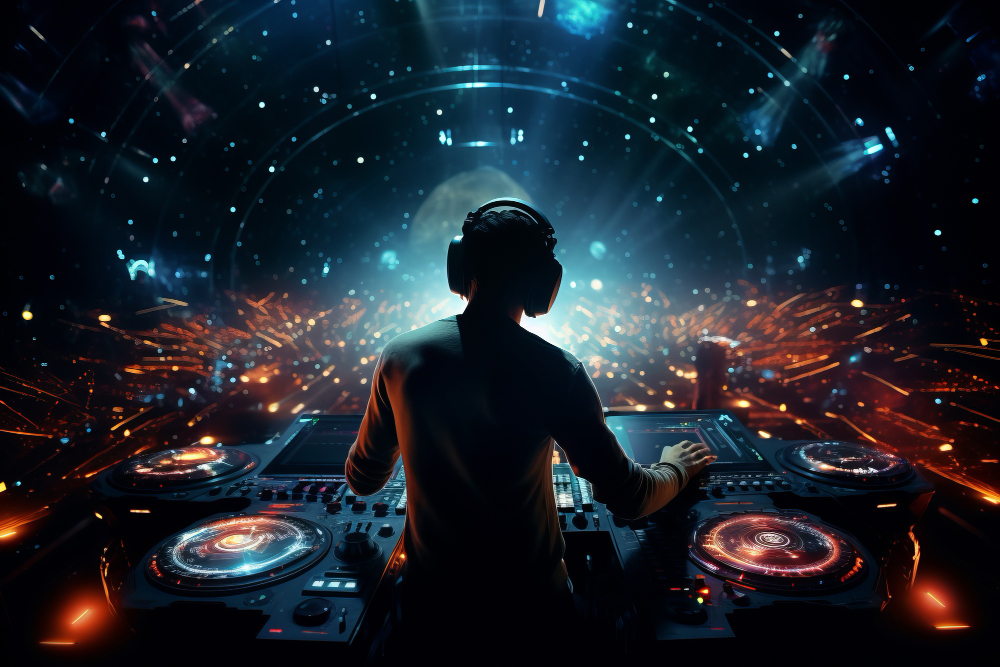How AI is Changing the Future of Music Production
There is more to artificial intelligence than merely data-driven tools. It is currently having unexpected effects on industries and the planet. Simply put, artificial intelligence (AI) gives businesses the ability to integrate computer science with reliable datasets and empowers them to find novel approaches to problem-solving. AI has been increasingly popular in the creative industries, like music, in recent years. By offering tailored recommendations on services like Spotify and Apple Music, artificial intelligence is revolutionizing how people engage with music.
Understanding AI in Music Production and Composition
With the help of generative AI, songwriters and artists can now create music in a matter of seconds, create vocals that sound like they were recorded, and segregate parts on the same recording. To build a new piece, AI is being utilized as a framework that is essentially restorative to separate vocals on a recording and blend them with piano and noise. AI has also raised ethical questions and has broad ramifications for everyone, not just the music business. But there are a lot of factors to take into account, such as losing control over how the digital image is used or not being able to speak for yourself.
AI-based algorithms are being incorporated by numerous streaming services to provide their users with music. This might make it impossible for new artists to discover fresh content and overwhelming for listeners.
The development of songs that truly touch people is being aided by AI technology. However, they are merely making more noise because of the volume of tunes being produced by AI.
AI in Composition and Music Production
Do you want free career counseling?
Ignite Your Ambitions- Seize the Opportunity for a Free Career Counseling Session.
- 30+ Years in Education
- 250+ Faculties
- 30K+ Alumni Network
- 10th in World Ranking
- 1000+ Celebrity
- 120+ Countries Students Enrolled
These days, text production, code development, and image creation are all being more impacted by generative AI. However, the result is not flawless. Large language model chatbots like ChatGPT are getting better, but they still can’t always produce precise results. With the help of AI music platforms like Soundful, OpenAI’s MuseNet, and Meta’s Audiocraft, users may now make music more rapidly and effectively.
Traditional music composition takes a lot of time because it calls for an extensive understanding of musical theory in addition to hours of creativity. However, composers and artists may now use algorithms to produce music in a fraction of the time thanks to the introduction and development of generative AI in music composition.
Generative AI is capable of analyzing existing music collections, finding trends, and producing genre-appropriate new songs. This capacity enables composers to experiment with various musical ideas, venture into uncharted musical territory, and produce excellent music at a never-before-seen pace. The creative potential of generative AI is limitless, propelling musical innovation to new heights.
Book Now →
Creative Music with AI
Meta and Google have already joined this trend. Two examples of experimental AI technologies that are intended to produce melodies from text-based descriptions are MusicGen by Meta and MusicLM by Google.
Personalized advertising production is a noteworthy application of AI in music creation. AI algorithms are being used by production businesses to create music in a variety of styles based on data collected about each of us from online choices. After that, the system presents audience-relevant music in customized advertisements.
Content producers aim to provide their audience with interesting experiences, whether it be through captivating podcasts or videos. A key element of creating immersive content is background music. Generative AI enables content producers to compose, discover, and utilize original background music. Equally important is the incorporation of AI-generated music with lyrics.
Do you want free career counseling?
Ignite Your Ambitions- Seize the Opportunity for a Free Career Counseling Session.Generative AI is capable of creating unique music and sifting through massive lyric databases to find rhythms, patterns, and storytelling devices. Creators may select the perfect soundtrack that enhances and complements their work by using AI algorithms to analyze vast music libraries. The degree to which AI-generated music recommendations are influenced by the tone, mood, and cadence of the material contributes to a smooth and engaging user experience.

How is AI Impacting the Music Industry?
Artificial intelligence is being employed in the music industry nowadays. It is giving composers and artists the opportunity to develop original breakthroughs in a number of fields, including the production, consumption, and discovery of music. Both advocates and detractors of AI’s role in music creation and consumption are now debating it; they have differing opinions about how AI will affect human creativity and originality in the music business.
AI has begun to play a significant role in music production, offering a number of benefits that enable producers and musicians to be more inventive and productive.
- Finding patterns and trends in music through the analysis of large data sets is one of the main advantages of AI music technology.
- AI helps with audience sentiment analysis, music promotion, and market success forecasting.
- AI technology is used by programs like Izotope and LANDR to mix, master, and alter music, giving musicians excellent and quick results.
- By creating unique melodies and lyrics using provided music data, AI is also influencing the composition and songwriting process.
With the help of AI-powered tools, musicians may work together and find inspiration by trying out various genres. Concerns over the replacement of human musicians and the future of music technology are being raised by the quick development of AI-generated music.
Pros of AI in Music Production
Cost-effectiveness and accessibility
The affordability of AI in music creation is one of its more significant benefits. AI software offers a more cost-effective substitute for the excessively expensive traditional recording equipment. By enabling producers on a budget to create professional sounds, this democratizes the music creation process. Additionally, royalty-free AI voices offer special benefits like affordability, scalability, and user-friendliness. This is a revolutionary tool for music producers who want to add variety to their tracks. They increase the creative possibilities by allowing them to produce, train, and utilize official and custom artist AI voices.
Increasing Innovation
Although artificial intelligence (AI) can be used to cut costs, it can also spur innovation. AI allows musicians and artists to concentrate on their creative side of the business by managing some of the technical facets of music production, such as mastering audio tracks. AI is being used to some degree by musicians in their composition, artwork creation, and mastering processes.
Creativity and Diversity in Vocals
The music industry is changing as a result of the introduction of AI-generated vocals. Producers can now try out a range of vocal textures and styles that were previously unattainable because of budgetary limitations. This invention broadens the range of sounds that producers can use and pushes the limits of what is possible in music.
Cons of AI in Music Production
Possible Issues with Quality
Although AI-generated vocals may increasingly replicate the human voice, it is still up for dispute if these systems can accurately convey the complex facial emotions of a genuine vocalist. Deep learning is the main tool used by AI to produce synthetic speech that sounds like the human voice. The nuanced emotional nuances that a live performer inherently possesses are absent from this.
Ethical and artistic considerations
Ethical questions concerning originality and the possible devaluation of human musicianship are being raised by the use of AI in music production. The notion that a machine can replicate an individual’s creative output is a contentious one. And this is causing some to worry about the role that artists and arts will play in the future.
Producer Opinions
Not all music producers support this technological shift, despite the opportunities. AI in music creation is seen negatively by many producers. Further indicating that the complete adoption of AI in music creation is still a work in progress, this shows a degree of hesitancy within the business.
Absence of Originality
The limited ability of generative AI to add expression to compositions is another barrier to its usage in music production. Even while AI systems are excellent at deciphering melodies, harmonies, and patterns, it is still challenging to capture the complexity of human emotions. Music is an art form that demands a deep understanding of human experience and arouses strong human emotions.
Copyright Issues
Numerous issues pertaining to authorship, copyrights, and the morality of AI-produced music are being brought up by the use of AI in the music-making process. When AI algorithms are trained on copyrighted content, the problem reveals who profits from AI-generated music. AI copyright issues are becoming more prevalent, which has prompted the creation of regulatory frameworks to address them. Regulators, producers, and artists are also figuring out how to guarantee creative control, attribution, and equitable compensation.
Conclusion
AI is undoubtedly here to stay and will only evolve more. Numerous new opportunities for increasing creativity, cutting expenses, and democratizing the music-making revolution are presented by the incorporation of AI in music creation. But it also brings with it difficulties that must be handled carefully and thoughtfully.
The emergence of AI means that the music industry must embrace new technologies, adjust to change, and find ways to preserve the human element that is essential to great music.
AAFT is the ideal place for you if you’re interested in beginning a career in music production or composition. To have access to industry-standard tools and resources and to master the necessary skills, think about enrolling in formal training. After earning your degree, you can launch your career with practical training and sufficient exposure to the industry. A variety of courses in related subjects are available at AAFT School of Music, giving you all the tools you need to pursue a career in music.
Read Also:

Deepika Joshi is a dedicated content writer and specialist with over three years of experience in the education and academic niche. Currently pursuing her master’s degree in Advertising and Public Relations, she also holds a Post Graduate Diploma in Public Relations and Events. Deepika excels at creating engaging, informative, and persuasive content that resonates with diverse audiences. She is well-equipped to tackle new challenges in the dynamic world of growing content.






